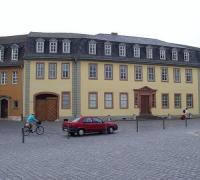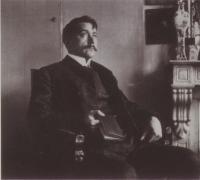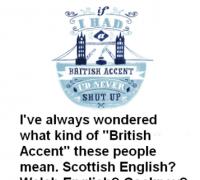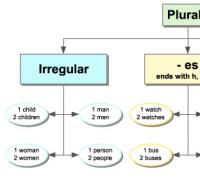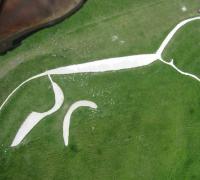Падеж имен существительных английский тесты. Притяжательный падеж тест по английскому языку на тему. Cлова house, office, shop, restaurant часто опускаются после существительных в притяжательном падеже, когда данные словосочетания выступают в предложении
ГБПОУ СО «ТПК»
Possessive Case of Nouns
Exercise 1
Use the possessive case
Example: The friends of ту parents. - Му parents" friends.
The children of John Turner.
The questions of mу son.
The wife of mу brоthеr.
The nаmе of this mаn.
The voice of this girl.
The саr of mу parents.
The rооm of mу friend.
The handbags of these women.
The flat of mу sister is large.
The children of mу brother are at hоmе.
The rооm of the boys is large.
The роеms of Lermontov.
Exercise 2
Use the possessive case
Задание 2.11. Вставьте слова в скобках, используя или -"s, или пред110г of.
1. What is ... ? (the nате 1 thjs таn)
2. What is ... ? (the address 1 Mike)
3. When is ... ? (Ьirthday 1 your тоthег)
4. Do you like ... ? (the taste 1 this ice-creaт)
5. Look at the nuтber at ... (the bottoт 1 the page)
6. What is ... ? (this таn 1 the profession)
7. For rne surnrner is ... (the best time 1 the year)
8. . .. is near the тагkеt. (the house 1 ту paгents)
9. . .. is very good. (the woгk 1 Магу)
1 О. . .. is yellow. (the colour 1 wall)
11. . .. very light. (the rоот 1 ту sister)
12. The post-office is at ... (the end 1 the stгeet)
13. 1 need ... (the help 1 ту friend)
14. . .. is very tasty. (the filling 1 this pie)
Задание 2.12. Переведите на английский язык, употребляя притяжа
тельный падеж существительных.
1. Чья это книга? - Это книга Петра. 2. Мэри взяла книги сво
его брата. 3. Дайте мне работы учеников, пожалуйста. 4. Это офис
нашего директора. 5. Это семья моего друга. Отец моего друга учи
тель. Мать моего друга врач. 6. Чьи это письма? - Это письма моих
друзей.Solicitors and Barristers
Title page 2 from 2
Вы уже изучили теорию по теме: «» и пора приступить к упражнениям. Упражнения этого урока делятся на уровни
Для начала давайте вспомним, что представляет из себя существительное в притяжательном падеже и на какой вопрос оно отвечает?
Притяжательный падеж существительного в английском языке. Упражнения для начинающих
Притяжательный падеж существительных
the child’s toys — the children’s toys
the boy’s books — the boys’ books
Упражнение 1 (из учебника «Грамматика. Сборник упражнений.» Ю.Голицынский). Спросите, чьи это предметы и ответьте, перефразируя приведенные ниже словосочетания. Используйте притяжательный падеж.

Упражнение 2. Поставьте апостроф в нужное место и переведите предложение.
ПРИМЕР. That’s Jims new girlfriend. — Jim’s new girlfriend
1. Can you tell me where the girls mother is? —
2. Where are the childrens books? —
3. The students results are very good. —
4. I’ve got to go to the doctors. —
5. These are John and Mary children. –
Упражнение 3. Раскройте скобки, соединив существительные с помощью конструкции притяжательного падежа.
ПРИМЕР. Show me (timetable, Kathy). = Show me Kathy’s timetable.
1. Where is (album, Richard)?
2. Is (Tom, school) far from his house?
3. Do you know (Bill, new teacher)?
4. What are (names, their children)?
5. Is (your mother, car) new?
6. (parrot, Kathy) is smart and funny.
7. (birthday, my mum) is on the 8th of July.
Упражнение 4. Переведите словосочетания на английский язык.
1. The … … (котенок мальчика) is hiding in the mitten.
2. The … … (котята мальчиков) are hiding in the mittens.
3. The … … (кошка женщины) is sleeping on the mat.
4. The … … (кошки женщин) are sleeping on the mats.
5. Nick went to the … … (булочная) to buy some bread.
6. We’re going to have a … (недельный) holiday next month.
7. The … … (лица детей) were happy when they saw the new toys.
8. We’ll meet at my … (друга) and have a good time.
9. Have you read … (сегодняшнюю) newspaper?
10. The … … (платье девочки) was dirty because she had fallen into a pool.
11. The … … (платья девочек) were new and beautiful.
12. Some of my friends are planning next … (года)summer holidays.
13. The … … … (центральная улица города) is Tverskaya Street.
14. The … … (название корабля) which hit an iceberg on the first trip in 1912 was The Titanic.
15. … … … (собор святого Павла) is the main cathedral in London.
16. A lot of monuments of … … (лондонской истории) are situated in the City.
17. The … (мужская) clothes are sold on the second floor of the shop.
18. … (басни Эзопа) fables are very interesting. (Aesop)
Притяжательный падеж существительного в английском языке. Упражнения для продолжающих
Упражнение 5.
(из учебника «Грамматика. Сборник упражнений.» Ю.Голицынский). Переведите предложения на английский язык, используя притяжательный падеж.
Тест. Притяжательный падеж существительного в английском языке
Выберите правильный вариант.

Упражнение 6. Переведите на русский язык.
- a minute’s silence
- a day’s work
- a hour’s delay
- tomorrow’s match
- a day’s wait
- city’s central street
Упражнение 7. Переведите на английский язык.
1. дети Дона и Мэри
2. дом моих дяди и тети
3. машина родителей Стива
4. сад наших бабушки и дедушки
5. название улицы
6. сегодняшняя газета
Упражнение 8. (из учебника Мерфи) Вставьте в пропуск существительное в притяжательном падеже.
ПРИМЕР If I leave my house at 9 o’clock and drive to London, I arrive at about 12 o’clock. So it’s about three hours’ drive to London from my house.
1. I’m going on holiday on the 12th . I have to be back at work on the 26th.
So I’ve got…………..holiday.2. I went to sleep at 3 o’clock this morning and woke up an hour later at 5 o’clock.
So I only had ………………….sleep.3. If I leave house at 8 o’clock and walk to work, I get to work at 9 o’clock.
So it’s only ……..walk from my house to work.
Притяжательный падеж с упражнениями
1. Когда существительное, которое нужно поставить в притяжательный падеж, выражает человека или животное, мы используем " s : the manager " s office , Mr . Evan " s daughter , the horse " s tail , a policeman " s hat .
В остальных случаях (с вещами) мы обычно используем … of … :
The door of the room, the beginning of the story.
2. " s можно использовать, когда существительное выражает организацию (группу людей ):
the government"s decision или the decision of the government
the company"s success или the success of the company
Также можно использовать " s с существительными, обозначающими места и страны:
The city"s new theater, the world"s population, Britain"s system of government, Italy"s largest city
3. После существительного в единственном числе мы используем " s . После существительного во множественном числе, оканчивающимся на - s , мы используем только апостроф (" ):
my sister " s room (когда сестра одна) — my sisters " room (когда сестер больше одной)
Mr . Carter " s house — the Carters " house (дом мистера и миссис Картер)
Если множественное число не оканчивается на - s , мы используем " s :
children"s book
Примечания :
А) Обрати внимание, что " s можно использовать не только после одного слова:
Jack and Jill"s wedding — свадьба Джека и Джил
Mr . And Mrs . Carter " s house — дом мистера и миссис Картер
Но " s не используется после очень длинных выражений, наподобие следующего:
I met the wife of the man who lent us the money ("the man who lent us the money" слишком длинное выражение , чтобы после него использовать "s )
Б) " s можно использовать и без последующего существительного, если смысл без него будет понятен:
Tom"s flat is much bigger than Ann"s (= Ann"s flat).
В) Артикль в сочетаниях существительного в притяжательном падеже и обычного существительного (the cat " s tail ) относится к первой части, то есть к существительному в притяжательном падеже. Второй части артикль не нужен, так первая часть является determiner -ом для второй части. Поэтому " the cat " s tail " означает "хвост той самой кошки", а " a cat " s tail " означает "хвост какой-то кошки" или "кошачий хвост вообще". И поэтому же в выражении " Ann " s flat " артикля нет, так как артикль не ставится перед именами собственными.
3. "s также используется после слов , обозначающих время (tomorrow"s newspaper, today"s match, this evening"s show, next week"s election, Monday"s payment и так далее ):
Have you still got last Saturday"s newspaper?
Мы также используем " s (или просто (" ) со множественным числом) с периодом времени:
I " ve got a week " s holiday . — У меня недельный отпуск.
I " ve got three weeks " holiday . — У меня отпуск на три недели.
I need eight hours" sleep at night.
My house is very near here — only about five minutes" walk. — Мой дом здесь совсем рядом — всего пять минут ходьбы .
Упражнения.
1. Соедини существительные при помощи " s , (") или … of …
Например :
The door/the room the door of the room
The mother/Ann Ann"s mother
1. the camera/Tom __________
2. the eyes/the cat__________
3. the top/the page_________
4. the daughter/Charles _________
5. the newspaper/today _______
6. the toys/the children
7. the name/your wife________
8. the name/this street________
9. the name/the man I saw yesterday __________
10. the new manager/the company ________
11. the result/the football match ________
12. the car/Mike parents ________
13. the garden/our neighbors
14. the children/Don and Mary
2. Прочитай предложение и напиши новое, используя подчеркнутые слова:
The meeting tomorrow has been cancelled. Tomorrow"s meeting has been cancelled.
1. The storm last week caused a lot of damage.
2. The only cinema in the town has been closed down.
3. Tourism is the main industry in the region.
3. Теперь ты должен использовать данную информацию, чтобы завершить предложения:
If I leave my house at 9 o"clock and drive to London, I arrive at about 12 o"clock. So it"s about three hours" drive to London from my house .
1. I"m going on holiday on the 12th. I have to be back at work on the 26th. So I"ve got __________________ holiday.
2. I went to sleep at 3 o"clock this morning and woke up an hour later at 4 o"clock. So I only had ________________ sleep.
3. If I leave my house at 8.50 and walk to work, I get to work at 9 o"clock. So it"s only __________ walk from my house to work.
Ответы :
1. Tom’s camera
2. the cat’s eyes
3. the top of the page
4. Charles’s daughter
5. today’s newspaper
6. the children’s toys
7. your wife’s name
8. the name of this street
9. the name of the man I saw yesterday
10. the new manager of the company
11. the result of the football match
12. Mike parents’ car
13. our neighbors’ garden
14. Don and Mary’s children
1. Last week’s storm caused a lot of damage.
2. The town’s only cinema has been closed down.
3. The region’s main industry is tourism.
1. I"m going on holiday on the 12th. I have to be back at work on the 26th. So I"ve got two week’s holiday/14 day’s holiday.
2. I went to sleep at 3 o"clock this morning and woke up an hour later at 4 o"clock. So I only had an hour’s sleep/one hour’s sleep.
3. If I leave my house at 8.50 and walk to work, I get to work at 9 o"clock. So it"s only ten minutes’walk from my house to work.
Прочитайте текст и определите родственные связи героев, используя притяжательный падеж.
George and Mary are married. (Джордж и Мэри женаты.) They have 2 children: John and Laura. (У них двое детей: Джон и Лаура.) Mary has a sister, Kelly. (У Мэри есть сестра Кэлли.) George has a brother, Rob. (У Джорджа есть брат Роб.)
George is Mary’s husband. (Джордж – муж Мэри.)
- Mary is ______ wife. (жена)
- George is __________ father. (отец)
- Mary is _________ mother. (мать)
- John is __________ son. (сын)
- Laura is _______ daughter. (дочь)
- John is __________ brother. (брат)
- Laura is _________ sister. (сестра)
- Kelly is _________ aunt. (тетя)
- Rob is __________ uncle. (дядя)
- John is __________ nephew. (племянник)
- Laura is _________ niece. (племянница)
1. Переведите словосочетания, используя притяжательный падеж существительных.
Например: отец Кэрол – Carol’s father
1. работа Джессики
2. имя доктора
3. машина Фрэнка
4. телевизор Ани
5. компьютер моих сыновей
6. дочь Марка и Виктории
7. словари Сюзанны
8. ключи моей сестры
9. сумки наших гостей
10. учитель моей дочери
Ответы:
1. Jessica’s job/work
2. the doctor’s name
3. Frank’s car
4. Anna’s television/TV set
5. my sons’ computer
7. Susanna’s dictionaries
8. my sister’s keys
9. our guests’ bags
10. my daughter’s teacher
Притяжательный падеж с упражнениями
1. Когда существительное, которое нужно поставить в притяжательный падеж, выражает человека или животное, мы используем "s : the manager"s office, Mr. Evan"s daughter, the horse"s tail, a policeman"s hat.
В остальных случаях (с вещами) мы обычно используем … of … :
The door of the room, the beginning of the story.
2. "s можно использовать, когда существительное выражает организацию (группу людей):
the government"s decision или the decision of the government
the company"s success или the success of the company
Также можно использовать "s с существительными, обозначающими места и страны:
The city"s new theater, the world"s population, Britain"s system of government, Italy"s largest city
3. После существительного в единственном числе мы используем "s . После существительного во множественном числе, оканчивающимся на -s , мы используем только апостроф (" ):
my sister"s room (когда сестра одна) - my sisters" room (когда сестер больше одной)
Mr. Carter"s house - the Carters" house (дом мистера и миссис Картер)
Если множественное число не оканчивается на -s , мы используем "s :
children"s book
Примечания:
А) Обрати внимание, что "s можно использовать не только после одного слова:
Jack and Jill"s wedding - свадьба Джека и Джил
Mr. And Mrs. Carter"s house - дом мистера и миссис Картер
Но "s не используется после очень длинных выражений, наподобие следующего:
I met the wife of the man who lent us the money ("the man who lent us the money" слишком длинное выражение,чтобы после него использовать "s )
Б) "s можно использовать и без последующего существительного, если смысл без него будет понятен:
Tom"s flat is much bigger than Ann"s (= Ann"s flat).
В) Артикль в сочетаниях существительного в притяжательном падеже и обычного существительного (thecat"s tail) относится к первой части, то есть к существительному в притяжательном падеже. Второй части артикль не нужен, так первая часть является determiner-ом для второй части. Поэтому "the cat"s tail" означает "хвост той самой кошки", а "a cat"s tail" означает "хвост какой-то кошки" или "кошачий хвост вообще". И поэтому же в выражении "Ann"s flat" артикля нет, так как артикль не ставится перед именами собственными.
3. "s также используется после слов, обозначающих время (tomorrow"s newspaper, today"s match, this evening"s show, next week"s election, Monday"s payment и так далее):
Have you still got last Saturday"s newspaper?
Мы также используем "s (или просто (" ) со множественным числом) с периодом времени:
I"ve got a week"s holiday. - У меня недельный отпуск.
I"ve got three weeks" holiday. - У меня отпуск на три недели.
I need eight hours" sleep at night.
My house is very near here - only about five minutes" walk. - Мой дом здесь совсем рядом - всего пять минутходьбы.
Упражнения.
1. Соедини существительные при помощи "s, (") или … of …
Например:
The door/the room the door of the room
The mother/Ann Ann"s mother
1. the camera/Tom __________
2. the eyes/the cat__________
3. the top/the page_________
4. the daughter/Charles _________
5. the newspaper/today _______
6. the toys/the children
7. the name/your wife________
8. the name/this street________
9. the name/the man I saw yesterday __________
10. the new manager/the company ________
11. the result/the football match ________
12. the car/Mike parents ________
13. the garden/our neighbors
14. the children/Don and Mary
2. Прочитай предложение и напиши новое, используя подчеркнутые слова:
The meeting tomorrow has been cancelled. Tomorrow"s meeting has been cancelled.
1. The storm last week caused a lot of damage.
2. The only cinema in the town has been closed down.
3. Tourism is the main industry in the region.
3. Теперь ты должен использовать данную информацию, чтобы завершить предложения:
If I leave my house at 9 o"clock and drive to London, I arrive at about 12 o"clock. So it"s about three hours" drive to London from my house .
1. I"m going on holiday on the 12th. I have to be back at work on the 26th. So I"ve got __________________ holiday.
2. I went to sleep at 3 o"clock this morning and woke up an hour later at 4 o"clock. So I only had ________________ sleep.
3. If I leave my house at 8.50 and walk to work, I get to work at 9 o"clock. So it"s only __________ walk from my house to work.
Ответы:
1. Tom’s camera
2. the cat’s eyes
3. the top of the page
4. Charles’s daughter
5. today’s newspaper
6. the children’s toys
7. your wife’s name
8. the name of this street
9. the name of the man I saw yesterday
10. the new manager of the company
11. the result of the football match
12. Mike parents’ car
13. our neighbors’ garden
14. Don and Mary’s children
1. Last week’s storm caused a lot of damage.
2. The town’s only cinema has been closed down.
3. The region’s main industry is tourism.
1. I"m going on holiday on the 12th. I have to be back at work on the 26th. So I"ve got two week’s holiday/14 day’s holiday.
2. I went to sleep at 3 o"clock this morning and woke up an hour later at 4 o"clock. So I only had an hour’s sleep/one hour’s sleep.
3. If I leave my house at 8.50 and walk to work, I get to work at 9 o"clock. So it"s only ten minutes’walk from my house to work.
Упражнения на притяжательный падеж
1. Underline the correct words in bold (Подчеркните правильное слово выделенное черным шрифтом).
a. “Who is she?” “She’s Tom’s and Bob’s / Tom and Bob’s sister.
b. “Is this Paul / Paul’s ?” “No, this is mine.”
c. “What’s your father’s / father name?
d. Where are the children’ / the children’s books?
e. This is the leg of / the leg’s the table.
f. Helen’s / Helens ball is green and white.
2. Write ’s in the correct place in the sentences as in the example ( Поставьте ’s в нужное место в предложении , как в примере ).
a. Tom is Liza ’s cousin.
b. Is this Bob car?
c. Where’s Billy bag?
d. It’s Sara birthday on Monday.
e. What’s your wife name?
f. Peter is my brother friend.
g. Diana flat is in the centre of London.
h. My uncle name is Jack.
1) Underline the correct answer ( Подчеркни правильный ответ ).
a. Liza is Ted’s wife / grandmother.
b. Gary is Ken’s brother / cousin.
c. Bob is Monica’s grandfather / grandmother.
d. Ted is Ken and Gary’s father / uncle.
e. Caroline is Gary’s aunt / mother.
f. Harry is Caroline’s father / husband.
Посмотри на семейное древо и заполни пропуски как в примере ).
b. Monica is…………………………….daughter.
c. Lucy is…………………….mother.
d. Ken and Gary are…………….cousins.
e. Bob is ……………………..father.
f. Liza is……………..sister.
Исправьте ошибки , как в примере ).
Tom and Peter’s
b. The black hat is Toms’.
c. The roof’s house is grey.
f. Mices’ tails are grey.
5. Переведите словосочетания, используя притяжательный падеж существительных.
Например: отец Кэрол – Carol’s father
1. работа Джессики 2. имя доктора 3. машина Фрэнка 4. телевизор Ани 5. компьютер моих сыновей 6. дочь Марка и Виктории 7. словари Сюзанны 8. ключи моей сестры 9. сумки наших гостей 10. учитель моей дочери
ОТВЕТЫ НА УПРАЖНЕНИЯ НА ПРИТЯЖАТЕЛЬНЫЙ ПАДЕЖ
1. a . 2; b . 2; c . 1; d . 2; e . 1; f . 1;
2 . b . Bob ’ s car (машина Боба);
c . Billy ’ s bag (сумка Билли);
d . Sara ’ s birthday (день рожденье Сары);
e. wife’s name ( имя жены );
f. my brother’s friend ( друг моего брата );
g . Diana ’ s flat (квартира Дианы);
h. My uncle’s name ( имя дяди ).
3. 1) Underline the correct answer ( Подчеркни правильный ответ ).
a. Liza is Ted’s wife / grandmother.
b. Gary is Ken’s brother / cousin.
c. Bob is Monica’s grandfather / grandmother.
d. Ted is Ken and Gary’s father / uncle.
e. Caroline is Gary’s aunt / mother.
f. Harry is Caroline’s father / husband .
2) Look at the family tree and complete the sentences as in the example ( Посмотрите на семейное древо и заполните предложения как в примере ).
a. Harry is Caroline’s husband.
b. Monica is Harry and Caroline’s daughter.
c. Lucy is Liza and Harry’s mother.
d. Ken and Gary are Monica’s cousins.
e. Bob is Liza and Harry’s father.
f. Liza is Harry’s sister.
4. Correct the mistakes as in the example ( Исправьте ошибки , как в примере ).
a. Is that Tom’s and Peter umbrellas. Tom and Peter’s
b. The black hat is Toms’. Tom’s
c. The roof’s house is grey. The roof of the house
d. When is your mothers birthday? mother’s birthday
e. The bags are those women’. those women’s
f. Mices’ tails are grey. Mice’s tails
g. Carols father lives in the countryside. Carol’s father
5. Переведите словосочетания, используя притяжательный падеж существительных.
1. Jessica’s job/work
2. the doctor’s name
3. Frank’s car
4. Anna’s television/TV set
5. my sons’ computer
6. Mark and Victoria’s daughter
7. Susanna’s dictionaries
8. my sister’s keys
9. our guests’ bags
10. my daughter’s teacher







